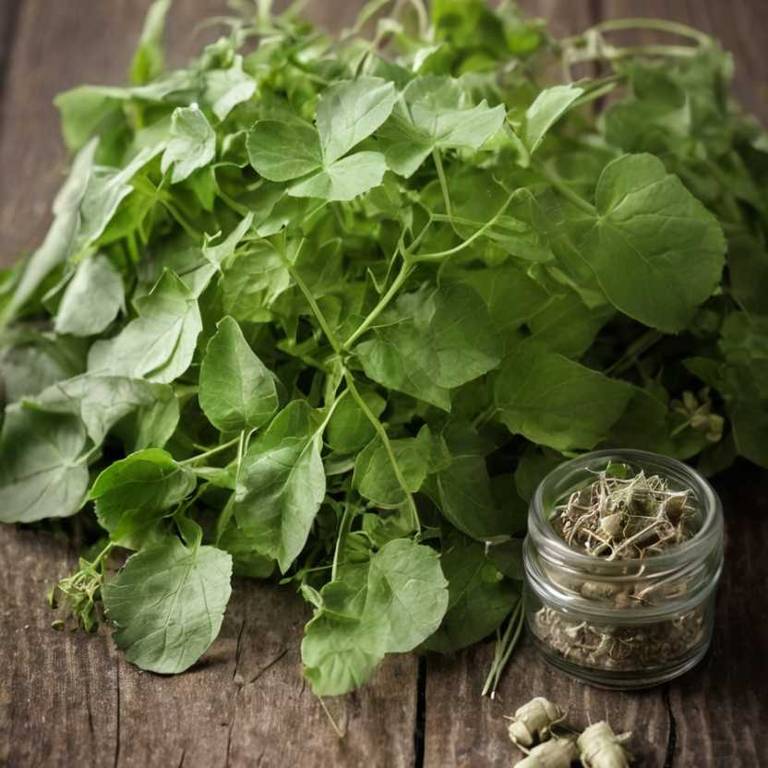By Leen Randell
Updated: Jul 06, 2024
10 Health Benefits Of Tilia Cordata (Littleleaf Linden)

Tilia cordata, also known as littleleaf linden, has health benefits such as anti-inflammatory and antispasmodic properties that help to calm anxiety and reduce stress.
Its medicinal properties include flavonoids and essential oils that promote relaxation and improve sleep quality.
This can lead to improved overall well-being, reduced risk of heart disease, and enhanced mental clarity, ultimately allowing people to lead more balanced and fulfilling lives.
This article explains in details the 10 best health benefits of Tilia cordata.
1. Reduces anxiety and promotes relaxation
Tilia cordata reduces anxiety and promotes relaxation because of its unique combination of phytochemicals.
The plant's leaves and flowers contain flavonoids, terpenes, and sesquiterpenes that have been shown to possess anxiolytic properties, capable of calming the nervous system and reducing stress levels.
Additionally, littleleaf linden has a sweet, soothing aroma that can help alleviate symptoms of anxiety, promoting a sense of calmness and relaxation in those who inhale its fragrance.
2. Improves sleep quality
Tilia cordata improves sleep quality because its fragrant flowers and leaves emit a soothing aroma that promotes relaxation.
The scent has been shown to reduce stress levels, anxiety, and insomnia by calming the mind and body, allowing for a more restful night's sleep.
As a natural sedative, littleleaf linden can also help regulate the body's circadian rhythms, leading to improved sleep duration and overall quality.
3. Lowers blood pressure
Tilia cordata lowers blood pressure because of its unique combination of bioactive compounds.
The leaves and flowers of this herb contain flavonoids, terpenes, and other phytochemicals that have been shown to relax blood vessels, reduce inflammation, and improve cardiovascular function. This results in a decrease in blood pressure, making it an effective natural remedy for hypertension sufferers.
Additionally, littleleaf linden's calming effects on the nervous system may also contribute to its hypotensive properties.
4. Relieves cough and cold symptoms
Tilia cordata relieves cough and cold symptoms because of its unique properties.
The leaves and flowers of this tree contain a range of bioactive compounds, including flavonoids, terpenes, and phenolic acids, which have potent anti-inflammatory and antimicrobial effects.
These compounds help to soothe and calm the respiratory tract, reducing inflammation and congestion associated with coughs and colds, ultimately providing relief from discomfort and promoting a faster recovery.
5. Reduces inflammation
Tilia cordata reduces inflammation because of its rich antioxidant and anti-inflammatory compounds.
The plant's leaves and flowers contain flavonoids, terpenes, and polyphenols, which have been shown to inhibit pro-inflammatory enzymes and cytokines.
Additionally, the extract has been found to suppress the production of inflammatory eicosanoids, making it a potential natural remedy for reducing inflammation and alleviating associated symptoms such as pain, redness, and swelling.
6. Treats digestive issues
Tilia cordata treats digestive issues because its flowers and leaves contain anti-inflammatory compounds that soothe the gut and alleviate symptoms of irritable bowel syndrome (IBS).
The plant's flavonoids and terpenes have been shown to reduce inflammation in the digestive tract, calming symptoms such as bloating, cramps, and diarrhea.
Additionally, littleleaf linden has natural antispasmodic properties that can help relax the muscles in the intestines, further easing digestion and reducing discomfort.
7. Boosts immune system
Tilia cordata boosts immune system because of its rich antioxidant and flavonoid content.
The leaves, flowers, and bark of this tree have been traditionally used in herbal medicine to combat infections and inflammation.
Studies have shown that Tilia cordata extracts exhibit immunomodulatory effects, increasing the production of white blood cells and activating natural killer cells, thereby enhancing the body's defense against pathogens and diseases.
8. Regulates menstrual cycle
Tilia cordata regulates menstrual cycle because of its unique combination of estrogenic and progesteronic properties.
The plant contains compounds like flavonoids, phenolic acids, and terpenes that have been shown to mimic the effects of estrogen in the body, helping to regulate hormonal imbalances and normalize menstrual cycles.
Additionally, Tilia cordata has anti-inflammatory and antispasmodic properties that may help alleviate symptoms associated with PMS, further supporting its potential to regulate menstrual cycles naturally.
9. Eases painful symptoms of hemorrhoids
Tilia cordata eases painful symptoms of hemorrhoids because its soothing properties help to reduce inflammation and discomfort.
The plant's flavonoids and terpenes work together to alleviate pain and itching associated with hemorrhoids, while its anti-inflammatory effects help to shrink swollen veins.
Additionally, the leaves and flowers of Tilia cordata contain a compound called tilianin, which has been shown to have a calming effect on the mucous membranes, further contributing to relief from painful hemorrhoid symptoms.
10. Acts as a natural diuretic
Tilia cordata acts as a natural diuretic because it contains flavonoids and phenolic compounds that have been shown to increase urine production.
The plant's leaves and flowers are rich in antioxidants and volatile oils, which can help to stimulate the kidneys and bladder, promoting the elimination of excess fluids and toxins from the body.
As a result, littleleaf linden has been traditionally used to treat conditions such as bloating, swelling, and urinary tract infections.